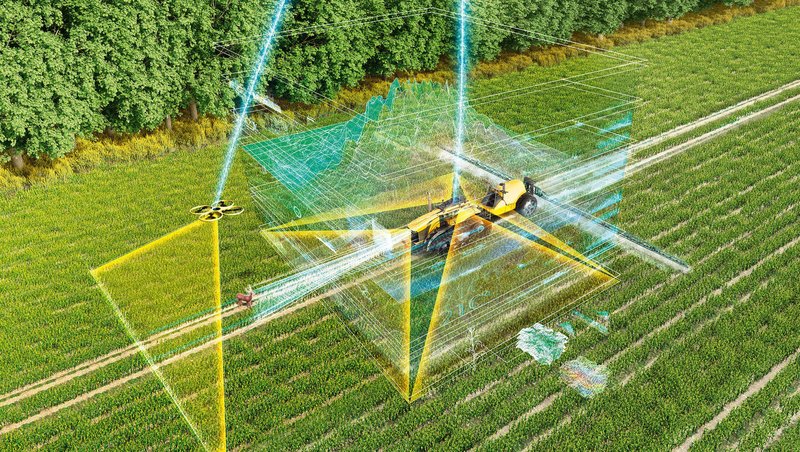Continental Increases Focus on Automated and Autonomous Driving in the Agricultural Industry
From 2025, autonomous, connected and fully automated agricultural vehicles will be a common sight on farm fields
Duensing: “The farm of tomorrow will resemble an ultra-modern technology center.”
Intelligent, precision farming offers growth potential
Knowhow transfer between the automotive and agricultural industries
Hanover, November 10, 2017. The technology company Continental is intensifying its activities in the field of automated and autonomous driving in the agricultural industry. From 2025, autonomous, fully automated and fully connected agricultural vehicles will be an increasingly common sight on farm fields. “The farmer of the future will no longer have to spend fifteen hours a day out on the fields during the harvesting season; instead, they will be able to control and monitor the entire harvesting process centrally from a location of their choice. The farm of tomorrow will resemble an ultra-modern technology center,” explains Hans-Jürgen Duensing – who, as a member of Continental’s Executive Board, is responsible for various segments including Off-Highway – in the run-up to Agritechnica, the world’s biggest trade fair for agricultural technology.
It is estimated that, by 2025, the world’s population will have grown to around eight billion, with this figure reaching the ten-billion mark before this century is out. “We want to do our bit to ensure that the food destined to feed the world’s population is grown sustainably and harvested efficiently. Greater connectivity, greater automation and greater digitalization in the agricultural industry are absolutely essential,” says Duensing, explaining the company’s motivation, adding: “The data that is generated will therefore become the most important seeds for the future and indispensable when it comes to refining and enhancing precision farming.”
The future strategic competitive advantage lies not only in the hardware, but also in the data analysis algorithms. Looking to the medium term, the data captured will allow Continental to offer additional services. This will help to ensure stable crop yields and protect the environment. The autonomous and automated driving of agricultural vehicles goes hand in hand here with across-the-board process automation, offering farmers real added value: Instead of driving the vehicles, the farmer of the future will take on a monitoring role, which will free up more time for planning and coordinating their farming tasks.
Agriculture as a growth industry
Activities relating to the intelligent and targeted management of agricultural areas are set to increase further over the coming years – and autonomous agricultural machinery is a key component here. External studies have shown that the market for “precision farming” – including the corresponding hardware and software – will grow by around 12 percent to approximately €4.5 billion by 2020. Due to their vast tracts of cultivable land and high technological standards, North America and Europe are set to be the fastest-growing markets.
Predictive maintenance reduces unplanned failures and boosts efficiency
In the future, data relating to the properties and characteristics of farming land will be available at all times, thereby enabling high-precision, targeted sowing. Communication between different vehicles will also help to make agricultural operations more efficient. Advanced driver assistance systems and predictive maintenance concepts are already integral elements of the agricultural industry. Sensors, for example, measure the temperatures of different components and supply real-time information about their current condition, which helps to extend the service life of components and reduce unplanned failures. Cameras and radar systems give drivers all-round visibility and generate images of the surrounding area or of areas that are otherwise difficult to see. Screens provide an at-a-glance display of all the data available and relevant to drivers. In addition to harvesting efficiency, targeted monitoring also increases the safety of people and animals and helps to protect the environment.
To achieve its goals in this sector, Continental is drawing on the technological expertise of its automotive engineers and systematically transferring this knowhow to the needs of its customers in the agricultural industry. In turn, experience from the agricultural industry is helping to support developments in the automotive industry, too. At this year’s Agritechnica, which will be held in Hanover from November 12 through 18, the technology company will be showcasing a range of selected innovations and highlights for Agriculture 4.0.

Wolfgang Reinert
Head of Media & Public Relations
ContiTech
